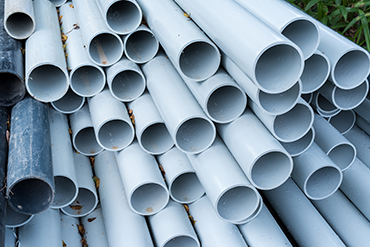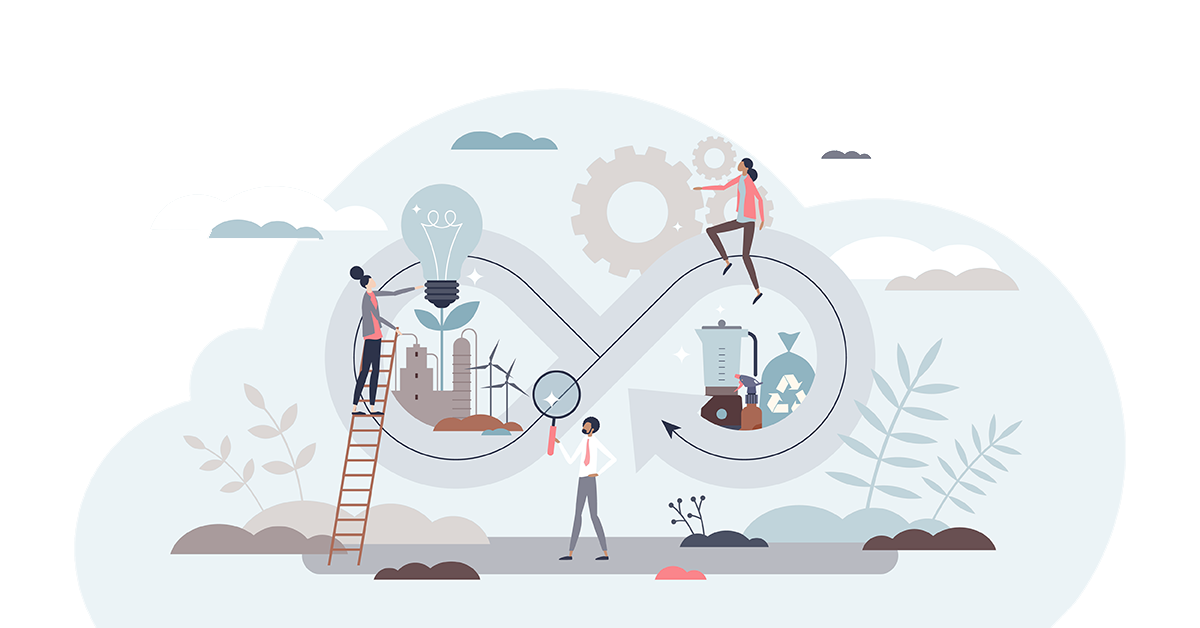February 6th, 2024
In recent years, the United States has witnessed a significant shift in its approach to handling plastic waste, particularly in the recycling of Polyvinyl Chloride (PVC). This change has not only become a trend but a crucial step towards environmental sustainability and resource management.
Polyvinyl Chloride is one of the most universally used synthetic plastic polymers and comes in two basic forms: rigid (RPVC) and flexible. The rigid form is used in construction for pipes, doors and windows, while the flexible PVC is used in applications such as electrical cable insulation, inflatable products and many applications where it mimics rubber.

Despite its common use, PVC poses notable ecological challenges. It is notoriously difficult to recycle due to its high chlorine content and the presence of hazardous additives, which can potentially release toxic chemical emissions. Additionally, PVC products are often utilized in applications that have long lifespans, consequently delaying their entry into waste streams and recycling systems.
Data compiled from the Plastics Industry Association found that the utilization of recycled plastics has increased in the United States during this past year. The U.S. had a 2023 third-quarter net import of recycled plastics material equivalent to $15.6 million, up 5.2% from the third quarter of 2022. Additionally, 1.1 billion pounds of vinyl was recycled last year, a 17% rise over 2019. These trends imply a distinct change in the reprocessing of plastics overall, especially within the PVC sector.
The Shift in U.S. Recycling Policies and Practices
Recognizing such factors, the U.S. has seen a gradual but definite turn in its approach to PVC. This difference is driven by a combination of influences:
- Technological Advancements: New recycling technologies have emerged that can safely and efficiently produce PVC, separating the valuable material from additives and impurities.
- Legislative Actions: Increased environmental awareness and concern have led to stricter regulations to improve on plastic waste management.
- Economic Incentives: The recycling industry is recognizing the economic potential of PVC salvaging, as it can be a worthy asset for manufacturing new products.
- Public Awareness and Demand: There is a growing consumer demand for sustainable products and practices, which include utilizing recycled elements.
The Impact of Increased PVC Recycling
The mounting rate of PVC recycling in the U.S. holds several positive impacts:
- Environmental Benefits: Harvesting PVC reduces the amount of polymer disposal in landfills and minimizes pollution.
- Conservation of Resources: It minimizes the need for producing new compounds, conserving natural reserves and energy.
- Economic Growth: The escalation of the PVC recycling industry creates job opportunities and positively contributes to the economy.
- Innovation: It encourages innovation in green technologies and organic product design.
While the advancements being made the U.S. are commendable, there is still much to be done. Continued investment in redefining infrastructure, research into safer and more efficient methods and public education are crucial. Furthermore, manufacturers need encouragement to create products with reusability in mind and divert from the use of hazardous additives in PVC goods.
The rising popularity in plastics and PVC recycling in the U.S. marks a momentous step towards a supportive and eco-friendly responsible future. It showcases a successful integration of improved technology, policy and public participation in addressing a major ecological concern. As we continue to make headway in this area, it is essential to maintain the momentum and strive to consistently evolve in our recycling procedures and practices.
The Slide team continues to endeavor to do everything in our power to minimize environmental impact. We’re aware that it’s our responsibility to work sustainability into our design, formulations and processes.
- Our SHARP program was created several years ago to properly dispose of aerosol cans and the chemicals they contain.
- The Refillable Cylinder program reduces HAZMAT refuse, minimizing ecological impact. Slide’s solar array generates nearly of the energy needed for our manufacturing process.
- Through our partnership with One Tree Planted, we donate a tree for every online order placed, and over the past year have contributed to planting over 2,500 trees globally.
For a complete overview, visit Slide’s Environmental Commitment & Action page.





